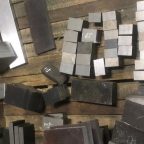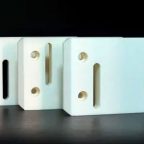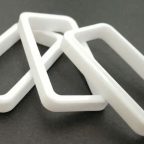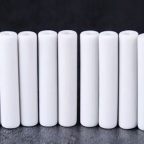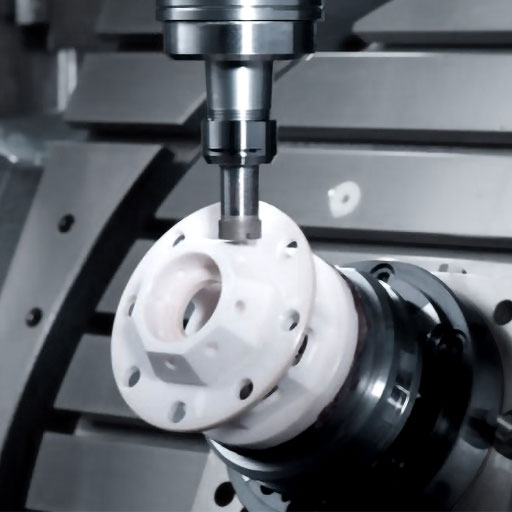Zirconia ceramics have excellent properties such as high melting point and boiling point, high hardness, good toughness, good wear resistance, insulators at room temperature, and electrical conductivity at high temperatures. What are the machining processes of zirconia ceramics? Next, Pintejin Ceramics to introduce to you.
Zirconia ceramic machining flow
- 1. Purchase of raw materials, namely zirconia powder, zirconia powder is a white heavy amorphous powder, odorless, tasteless, soluble in a mixture of 2 parts of sulfuric acid and 1 part of water, slightly soluble in hydrochloric acid and nitric acid, slow Soluble in hydrofluoric acid, almost insoluble in water.It is irritating, the relative density is 5.85. The melting point is 2680 ℃. Boiling point 4300 ℃. Harder than diamond.
- 2. Ceramic molding, ceramic molding mainly includes three molding methods: injection molding, dry pressing and isostatic pressing, and which molding method is used.
- It mainly depends on the shape, quantity and performance of the product. Different molding methods will have slightly different performance on the product.
- 3. Ceramic sintering, ceramic sintering is a general term for the densification process and phenomenon of ceramic green bodies at high temperatures. The sintering temperature of zirconia ceramics is 1450 °C, and the sintering temperature of alumina ceramics is 1680 °C.Their sintering process is to first heat up to about 300°C at the first node, continue to heat up to the highest temperature point, and then maintain a constant temperature for several hours, then start to cool down until the material is finally below 100°C, and the material can be taken out of the sintering furnace.
- 4. Ceramic finishing, finishing is mainly a series of finishing such as drilling, grinding and mirror polishing.
- 5. Quality inspection, strictly control the quality of products, so that customers can buy with confidence and use them with confidence.
The above is the machining flow of zirconia ceramics brought to you by Pintejin Ceramics. Pintejin Ceramics is a manufacturer specializing in the production and machining of ceramics, focusing on the machining of alumina ceramic parts and zirconia ceramics, and can process ceramic products according to your needs.
Pintejin machining ceramic service include : Alumina Ceramic Parts, Zirconia Ceramic, Silicon Carbide Ceramic, CNC Machined Aluminum Nitride Ceramic, Machinable Ceramic Parts, Glass Ceramic,Macor Ceramic,Powder Metallurgy Dies,Ceramic Injection Molding,Ceramic Dry Pressing,Ceramic Extrusion Dies
